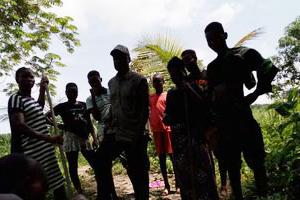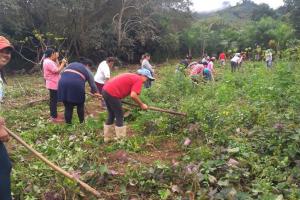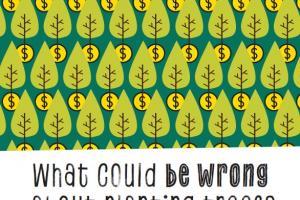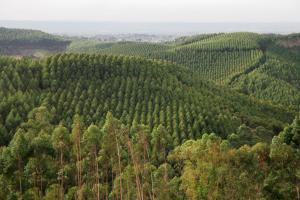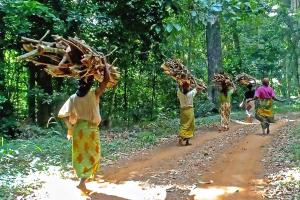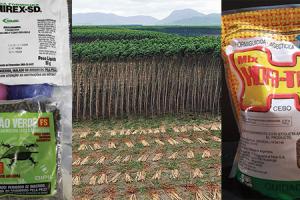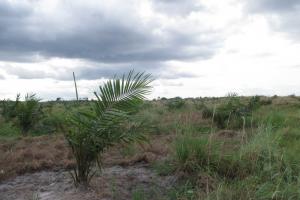Struggles Against Tree Monocultures
Corporate profit drives land grabs to install industrial tree monocultures. Where industrial plantations take root, communities' territories and lives are violently invaded, their forests destroyed and their water polluted. When communities resist, companies tend to respond with aggression. Despite this extreme violence, communities around the world are resisting, organizing and joining forces to defend their territories. Every September 21 the International Day of Struggle against Monoculture Tree Plantations is celebrated.
While palm oil companies present themselves as benevolent donors during the pandemic, communities living in and around these plantations tell another story. Activists against industrial oil palm plantations talk about communities’ situation since the Covid-19 outbreak.
With the Covid-19 crisis, the initiatives of movements and collectives based on feminist economics have gained strength. Feminist economics leads us to reflect on the updated mechanisms of control, while continuing to affirm the capacity for resistance and reconstruction of bodies in movement.
In response to an article that was published in WRM’s bulletin, Missão Tabita and WRM received letters from the plantation company, Portucel, and the organization, ORAM. The letters claimed that the article was untrue; however, neither Portucel nor ORAM could prove that the information published was not true.
This publication aims to alert community groups and activists about the corporate push for a new round of large-scale tree plantation expansion.
The Norwegian company APSD is establishing industrial eucalyptus plantations in Ghana for biomass fuel, which is considered a "carbon neutral" fuel. The Youth Volunteers for the Environment in Ghana spoke with communities affected by these plantations.
What are the experiences of communities living inside or adjacent to the plantation areas of companies with “zero deforestation” pledges? How can these companies continue expanding without deforesting in densely forested countries?
After more than 50 years of struggle by peasant communities who have faced all kinds of environmental and social destruction, the highest court of Cauca Valley has ruled against the industrial plantation company, Smurfit Kappa Cartón Colombia.
Plantation companies often argue that local populations are destroying the forests, particularly where people depend on firewood and/or charcoal for their energy needs. Thus, they argue, industrial plantations can “sustainably” provide this wood. But this is simply not true.
One of the latent dangers that comes with the establishment of monoculture plantations—which is generally invisible—is the high use of agrochemicals. Agrochemicals support profits for plantation companies and their financiers, while poisoning life.
While it was easy to see the smoke from the forest fires in Brazil, it was much harder to see what was behind the Brazilian government’s smokescreen: actions that will lead the rainforest to a swift death, destroying territories, livelihoods and the diverse cultures.
The company, Portucel, considers its thousands of hectares of plantations in Mozambique to be “sustainable,” despite serious problems and conflicts with and among local communities.
The Singapore-based OLAM company has secured access to 500 thousand hectares of land in Gabon to set up large-scale oil palm plantations, a country with 85% of forest coverage. How can OLAM then claim to follow a “zero deforestation” commitment?
